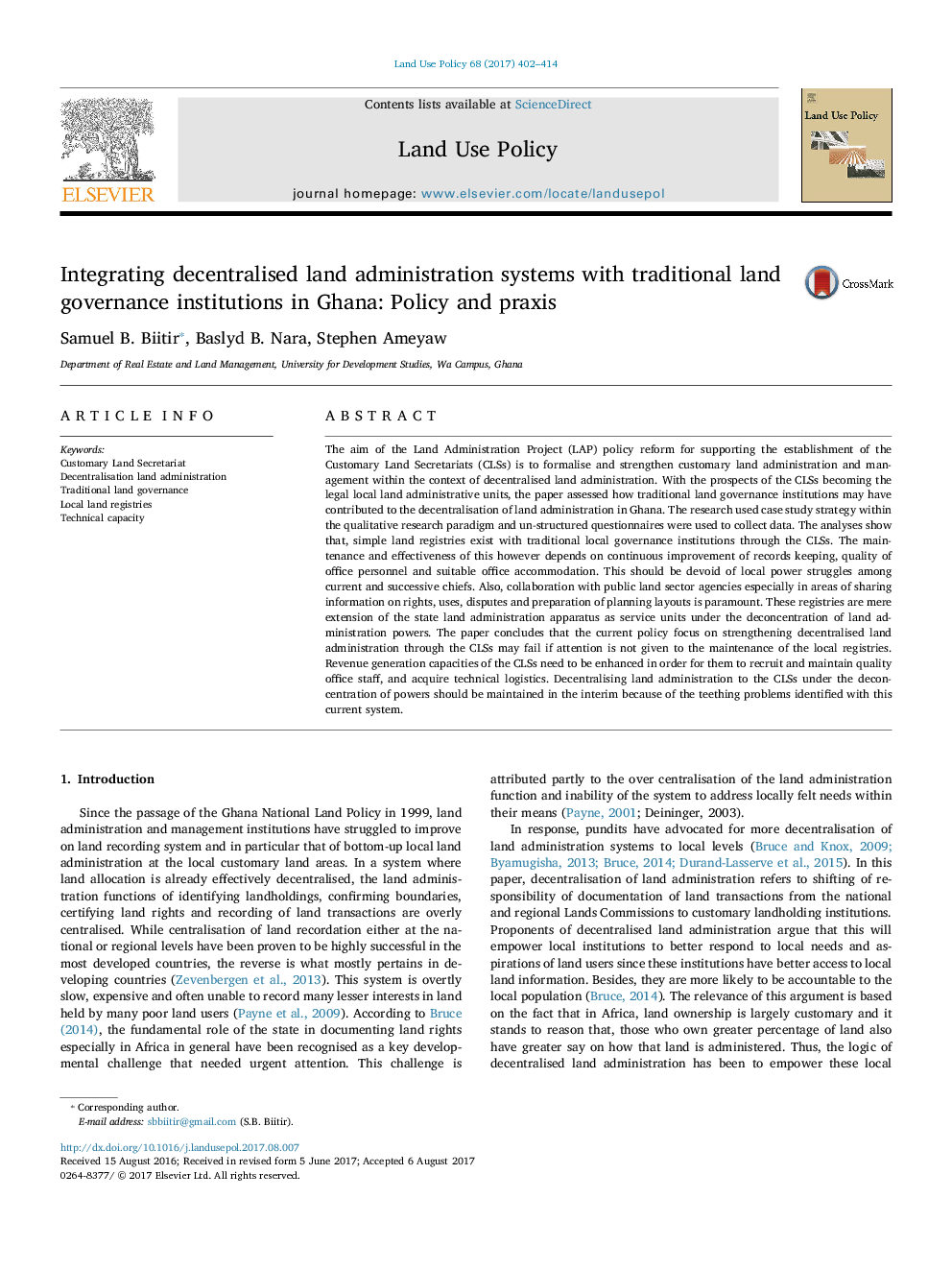ترجمه فارسی عنوان مقاله
ادغام سیستم های مدیریت زمین غیر متمرکز با موسسات حاکم سنتی زمین در غنا: سیاست و پراکسیس
عنوان انگلیسی
Integrating decentralised land administration systems with traditional land governance institutions in Ghana: Policy and praxis
| کد مقاله | سال انتشار | تعداد صفحات مقاله انگلیسی |
|---|---|---|
| 94715 | 2017 | 13 صفحه PDF |
منبع

Publisher : Elsevier - Science Direct (الزویر - ساینس دایرکت)
Journal : Land Use Policy, Volume 68, November 2017, Pages 402-414
ترجمه کلمات کلیدی
دبیرخانه زمین معمولی، کاهش زمینۀ مدیریت زمین، حکومت سنتی زمینی، ثبت زمین های محلی ظرفیت فنی،
کلمات کلیدی انگلیسی
Customary Land Secretariat; Decentralisation land administration; Traditional land governance; Local land registries; Technical capacity;

